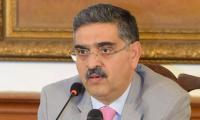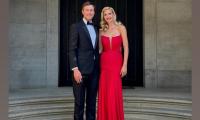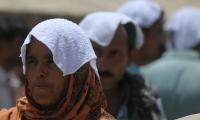The progress of Iraqi women has been hampered. They have been subjected to abuse, domestic violence and honor killings. It is the right time to bring economic stability in Iraq through their efforts.
The deterioration of women’s rights in Iraq began before 2003 when the international community imposed harsh sanctions on Iraq following its invasion of Kuwait in 1990. The effects of the war resonate to this day. Public services have been privatized and women can barely get access to healthcare and even childcare because of economic challenges. Empowering Iraqi women and ensuring their rights shall play a pivotal role in bringing stability in the country.
Convention on the Elimination of All Forms of Discrimination Against Women (CEDAW) has been ratified by Iraq which is an international bill for the rights of women, and it defines discrimination against women and encourages national actions to end discrimination. Despite ratifying CEDAW, the Iraqi laws for women are overshadowed by strict cultural norms. For instance, child marriages are proscribed in Personal Status Law of Iraq but on contrary, article 8 of this law has given a judge the authority to get an underaged girl married in case of urgency.
According to Multiple Indicator Cluster Surveys of 2021, 7.2 percent of married women between the ages of 20 to 24 got married before they turned 15 years old while 20.2 percent got married before turning 18. Iraqi Penal Code does not criminalize marital rape, nor does it punish a rapist if he marries the victim and stays married to her for at least three years. Reuters reported an Iraqi woman’s case who stated, “I was under constant stress, unhappy, feeling disgusted, I took every opportunity to initiate fights with him until I forced him to leave me”.
This is not enough; women are underrepresented politically as well. According to a research published by the United Nations, candidates for elections are selected on the basis of their tribal affiliations by political parties. However, women are not even given this leverage due to the political system being highly patriarchal.
Even if women are given a chance to run as candidates, funds are not allocated for their political campaign and instead, male candidates are preferred and provided with funds. In national elections of 2018, women had to face bullying, threats and derogatory remarks intended to jeopardize their political reputation.
BBC News reported on a female candidate for Kurdistan Democratic Party whose phone was stolen. A video of her wearing a short dress at a private party got leaked which was intended to harm her political reputation.
The special representative of the UN secretary general for Iraq stated, “In Iraq, one quarter of the seats in parliament must be occupied by women. But women running for office in the May polls are being subjected to “vulgar acts” on their election posters, as well as “attacks against [their] reputation and honor”.
Many Iraqi women have started to realize their capabilities enabling them to progress in different fields and stand up for their rights. United Nations Development Programme (UNDP) published a story of an Iraqi woman named Fawatim, a 34-year old engineer. She is working as the backbone of water facilities that provide clean water to different districts. However, this journey has not been easy because she was the only woman in this field surrounded by male colleagues. Later, she inspired several women to follow this path and said, “Only women can pave the way for other women”.
Additionally, women from Afghanistan, Iraq and Iran received training on religious freedom by participating in Empower Women Media’s Training Fellowship. Through this training, they could produce short films. A documentary, Strength Despite Everything by an Iraqi woman was awarded the grand prize in the Women’s Empowerment and Religious Freedom Film Competition in 2023. The documentary revolved around a Yazidi girl, terrorised by ISIS, yet fought against them to empower women.
The restrictions and suffocating environment have pushed them to raise their voices and create organizations for the protection of women. Middle East Policy Council stated that around 500 honor killings are reported in Iraqi Kurdistan.
One of the most renowned organizations is the Organisation of Women’s Freedom in Iraq. Its main purpose is to prevent human trafficking, domestic violence and promote gender equality. Another organisation, Women Leadership Institute (WLI) focuses on capacity building of Iraqi women, and increasing women’s participation in peacebuilding processes by emphasizing article UNSCR 1325. For combating violence against women, Asuda Organization has initiated several projects such as Protection and Empowerment of Women and Girls in Iraqi Kurdistan (ongoing), Combating Violence against Women (completed), etc. Beyond these, many other NGOs led by UN are operating in Iraq for women rights.
Furthermore, economic challenges, different interpretation of religion, cultural norms, and lack of legal framework for women’s rights have darkened the future of Iraqi women. Topics like gender equality and women empowerment should be a part of school textbooks and taught through the lens of Islam and Sunnah. On social media, renowned celebrities can play a vital role in promoting gender equality because of their vast viewership.
Lastly, women play a crucial part in creating civilized societies. Many years back, Napoleon stated, “Give me an educated mother, I shall promise you the birth of a civilized, educated nation”. Hence, it is high time Iraqi men realize that their country’s development depends on successful women now.
This image shows the Commission on Science and Technology for Sustainable Development in the South building in...
This representational image shows a teacher taking a class. — AFP/FileIslamabad:In a ground breaking move, the...
This image shows the logo of the Women’s Action Forum . — Facebook/Women's Action Forum, Islamabad/FileIslamabad:...
Aziz Boolani, CEO of Serena Hotels cut a ribbon along with Islamabad Foreign Women’s Association during the...
Participants pose for a group photo at a ceremony on May 2, 2024. — Radio PakistanIslamabad:Dr. Akbar Niazi Teaching...
Women boarding the Pink Bus after the inauguration ceremony in Karachi on February 1, 2023. — OnlineIslamabad: The...







